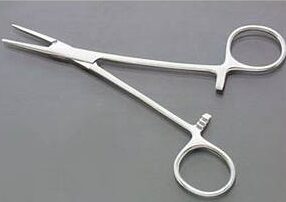Tech
Exploring the Classroom 6x

The standard lecture hall is changing to accommodate the needs of the twenty-first century, which is marked by rapid change and rapid technological development. With this shift, a new term has emerged: “Classroom 6x.” Let’s get into the specifics of this ground-breaking method of teaching and examine its many facets.
The Evolution of Classroom Design
Traditional Classroom Setup
A teacher would stand in front of a chalkboard and students would sit in rows of desks to listen to lectures. Although successful in the past, this method is no longer relevant to today’s students.
Modern Classroom Trends
The sixth-form classroom, or 6x, is a transition toward more adaptable and student-focused classrooms. These cutting-edge classrooms feature interactive whiteboards, mobile furniture, and other tools that encourage students to participate actively in class discussions.
Need for Adaptability
The ever-changing nature of education requires classrooms to be adaptable. Classroom 6x design allows for quick reconfiguration, making it suitable for different teaching methods and subjects.
The Benefits of Classroom 6x
Enhanced Learning Experiences
An interactive classroom fosters student engagement and promotes analytical reasoning. Digital materials and interactive presentations make education more effective.
Improved Teacher-Student Interaction
With the integration of technology, teachers can engage students more effectively. Personalized learning experiences become a reality, ensuring that no student is left behind.
Technology Integration
It embraces technology as a fundamental tool for teaching. It promotes digital literacy and equips students with skills necessary for the modern workforce.
Implementing
Design Considerations
The layout, furniture, and lighting are carefully planned to create an inviting atmosphere. Ergonomics and aesthetics play a significant role in the design.
Technological Infrastructure
It relies heavily on cutting-edge technological features such as powerful Wi-Fi, audiovisual equipment, and learning management systems. These facilitate trouble-free education.
Training and Support
Teachers receive training to effectively use the new technology and adapt their teaching methods. Ongoing technical support ensures a smooth learning experience.
Challenges and Solutions
Budget Constraints
The expense of the necessary technology and layout is a hindrance to the widespread implementation of Classroom 6x. In spite of this, several educational institutions have developed innovative strategies for acquiring capital, including the pursuit of grants and the formation of strategic alliances.
Resistance to Change
Change can be met with resistance. Successful transitions to Classroom 6x often involve stakeholder buy-in, clear communication, and showcasing success stories.
Measuring Success
Student Performance
Improved student performance is a key indicator of the success of Classroom 6x. Test scores, engagement levels, and collaborative skills are all measured.
Teacher Satisfaction
Teachers’ satisfaction and feedback are crucial. When educators feel supported and effective in their roles, the benefits of Classroom 6x become apparent.
Cost-Effectiveness
While the initial investment can be high, schools often find that the long-term benefits, including reduced maintenance costs and improved student outcomes, outweigh the expenses.
Future of Classroom Design
Emerging Technologies
The future promises even more exciting developments, with virtual reality, artificial intelligence, and augmented reality enhancing the learning experience.
Sustainability and Eco-Friendly Classrooms
As environmental concerns grow, It is embracing sustainability by using eco-friendly materials and energy-efficient technology.
Conclusion
The implementation of Classroom 6x is a revolutionary step forward for the field of education. It helps students get ready for the problems of the future by developing interactive, technology-based classrooms. It is at the forefront of reshaping the classrooms of the future as we continue to adopt innovative educational models.
FAQs
1. What is Classroom 6x? Classroom 6x is an innovative approach to education that transforms traditional learning spaces into dynamic, technology-rich environments.
2. How does Classroom 6x benefit students? It enhances learning experiences, promotes interaction, and equips students with essential digital skills for the modern world.
3. What challenges are faced when transitioning to Classroom 6x? Common challenges include budget constraints and resistance to change, but there are solutions to address these issues.
4. How is the success of Classroom 6x measured? Success is measured through improved student performance, teacher satisfaction, and cost-effectiveness.
5. What does the future hold for classroom design? The future of classroom design includes emerging technologies like virtual reality and a strong focus on sustainability and eco-friendliness.
Tech
Separating the Solid from the Liquid: Efficient Solutions for Wastewater Treatment

Importance of Wastewater Treatment
Wastewater treatment is essential for removing water contaminants before releasing them into the environment. This protects the ecosystem and public health by preventing the spread of disease. Mechanical dewatering is an effective method for separating solids from liquids in wastewater management, ensuring proper handling of contaminants. Untreated wastewater can contain harmful bacteria, viruses, and chemicals and harm the environment and human health. Advances in this field have made wastewater treatment more efficient and effective, with mechanical dewatering reducing water content in sludge and improving the overall treatment process.
Primary Treatment Methods
Wastewater treatment involves primary methods like screening, sedimentation, and flotation to separate solids from liquids. Screening traps large objects using physical barriers, while sedimentation allows heavy solids to settle at the bottom of tanks. Sludge is collected for further treatment or disposal. Flotation uses air bubbles to lift lighter particles to the surface, removing oils, greases, and other lightweight substances. Proper wastewater treatments can improve the performance of these methods, ensuring a more efficient overall process. Implementing proper wastewater treatments can significantly improve the overall process.
Types of Primary Treatment
- Screening: The first line of defense in wastewater treatment is removing large debris that can damage equipment and impede processes.
- Sedimentation: Using gravity to settle solid particles at the bottom of tanks, allowing for their removal as sludge.
- Flotation: Utilizing air bubbles to separate lighter contaminants that can be skimmed off from the surface.
Secondary Treatment Processes
Secondary treatments, which use biological processes in which microbes break down organic particles, are crucial for cleansing wastewater. Activated sludge processes and biofilm reactors are popular methods for reducing water’s biochemical oxygen demand (BOD) and removing dissolved and suspended organic compounds. These processes target organic pollutants that remain after primary treatment, reducing organic content and producing cleaner treated effluent. On the other hand, biofilm reactors use surfaces like plastic media for microorganism attachment and degradation of pollutants, making them particularly effective for treating high-load organic wastewater.
Advanced Treatment Technologies
Advanced wastewater treatment techniques, such as membrane filtration, advanced oxidation processes, and chemical precipitation, are increasingly used to achieve higher levels of treated water purity. These methods are efficient and adaptable to varying wastewater compositions, offering flexibility in treatment operations.
Membrane filtration employs semi-permeable membranes to separate contaminants from water, effectively filtering out tiny particles and pathogens.
Advanced oxidation processes create reactive oxygen species to break down organic pollutants, particularly stubborn contaminants resistant to conventional treatments.
Chemical precipitation involves adding chemicals to cause dissolved pollutants to form solid residues, making it easier to remove them through sedimentation or filtration.
Benefits of Innovative Solutions
The integration of innovative solutions in wastewater treatment has numerous benefits. For instance, modern treatment facilities often incorporate nutrient recovery technologies, which can convert waste into valuable resources like fertilizers. Utilizing advanced data analytics and automation can further enhance the efficiency and reliability of treatment processes, ensuring optimal performance.
Innovative approaches lead to more sustainable treatment methods, reducing the environmental footprint of wastewater treatment operations. For example, nutrient recovery mitigates waste and produces valuable by-products that can be repurposed, contributing to circular economy principles. Furthermore, real-time monitoring and control of treatment processes are made possible by deploying advanced data analytics and automation, enabling early discovery of problems and timely remedial action. This results in more consistent and reliable treatment outcomes, ultimately protecting environmental and public health.
The Future of Wastewater Treatment
The growing environmental challenges necessitate the development of advanced wastewater treatment solutions. Future trends include energy-efficient methods, sustainable practices, and AI integration to optimize treatment processes. These advancements aim to reduce energy consumption, lower operational costs, and reduce carbon footprints. Sustainable practices minimize waste generation, promote resource recovery, and reduce environmental impact. AI and machine learning can enhance optimization by analyzing large datasets, predicting outcomes, and recommending process adjustments. The future of wastewater treatment lies in combining emerging technologies and sustainable methodologies to provide cleaner, safer, and more efficient water treatment solutions to meet the growing population’s demands.
Tech
Windstream: Revolutionizing Telecommunications

Leading provider of network communications and technology solutions to American businesses and consumers, Windstream Holdings is a major force in the telecommunications sector. Since its founding in 2006, Windstream has undergone substantial development to emerge as a preeminent supplier of cutting-edge technology and network communications solutions. Its dedication to cutting-edge research and customer-focused strategies has given it a solid market position.
Services Offered by Windstream
Internet Services
It provides high-speed internet services for both home and commercial users. They strive to offer dependable connectivity for flawless online experiences with a range of plans and packages.
Business Solutions
For enterprises, It provides tailored solutions including cloud-based services, network security, and communication tools designed to enhance productivity and efficiency.
Residential Offerings
Their residential offerings span from internet and digital TV to home phone services, ensuring households stay connected for both entertainment and communication purposes.
Advantages of Windstream Services
Reliable Connectivity
It prides itself on offering stable and dependable internet connections, crucial for both business operations and personal use.
Customer Support
Their dedicated customer support ensures prompt assistance, resolving issues effectively to maintain customer satisfaction.
Tailored Solutions
Understanding the various needs of its customers, Windstream provides individualised solutions to satisfy particular demands and cultivates enduring partnerships.
Challenges Faced by Windstream
Amidst its success, Windstream faces challenges such as intensified competition, rapid technological advancements, and regulatory issues, compelling the company to adapt swiftly to stay ahead in the market.
Innovation and Future Prospects
Technological Advancements
The company consistently invests in technology, striving to innovate and provide cutting-edge solutions to meet evolving customer demands.
Expansion Plans
It has ambitious expansion plans, aiming to reach more regions and serve an even larger customer base.
Sustainability Initiatives
With a commitment to environmental responsibility, Windstream is integrating sustainable practices into its operations and services.
Customer Testimonials and Reviews
Positive customer experiences highlight Windstream’s dedication to providing reliable services, contributing to high satisfaction levels.
Comparison with Competitors
Analyzing strengths and weaknesses compared to competitors helps understand Windstream’s market position and potential areas for improvement.
Impact of Windstream on Communities
Beyond business, Windstream actively contributes to the communities it serves, fostering economic growth and supporting social initiatives.
Corporate Social Responsibility (CSR) Efforts
Initiatives towards society and environment
It is engaged in various CSR initiatives, focusing on education, environment, and community development.
Community Engagement
Through employee volunteering and partnerships, Windstream actively engages with communities, making a positive impact.
Investment and Financial Performance
Continuous growth trends and a solid financial standing indicate Windstream’s resilience and potential for further development.
Future Trends in Telecommunications
Forecast and Predictions
As the telecommunications landscape evolves, Windstream remains positioned to lead with its innovative strategies and services.
Role of Windstream
The company’s vision and adaptability will play a crucial role in shaping the future of telecommunications.
Conclusion
With its unwavering commitment to quality and expansion, Windstream is a symbol of innovation and customer service in the telecom sector.
Unique FAQs
- Does Windstream provide services nationwide?Yes, It offers services across the United States, focusing on both residential and business needs.
- How does Windstream ensure reliable connectivity?It invests in robust infrastructure and technology to ensure stable and dependable internet connections for its customers.
- What sets it apart from its competitors?It dedication to customer-centric solutions, reliable connectivity, and innovative offerings sets it apart in the market.
- Are there any sustainability initiatives undertaken by Windstream?Yes, It integrates sustainable practices into its operations, demonstrating a commitment to environmental responsibility.
- How does it contribute to the communities it serves?It actively engages in various community development initiatives, fostering economic growth and supporting social causes.
Tech
Exploring Futemax

Futemax, a leading streaming platform, offers a unique blend of technological innovation and entertainment, quickly establishing itself as a top choice for entertainment enthusiasts.
Features and Benefits
Futemax offers high-quality streaming with diverse content, catering to various tastes and preferences, ensuring a seamless user experience through its vast library of shows and movies.
Subscription Plans
Users have the flexibility to choose from different subscription tiers, each offering unique benefits at varying costs. From basic packages to premium offerings, Futemax ensures there’s a plan for every viewer, aligning with their needs and budget.
Device Compatibility
Futemax’s adaptability across various devices, including smart TVs, smartphones, and laptops, ensures accessibility and makes entertainment accessible to viewers at their fingertips.
Navigating the Platform
Upon entering the Futemax universe, users are greeted with an intuitive interface, simplifying the browsing experience. Search tools and personalized recommendations enhance discoverability, making it easier to find desired content.
Content Categorization
The platform boasts an extensive array of genres and categories, ranging from classic films to trending series. With a well-organized structure, users can effortlessly explore their favorite genres or stumble upon new and exciting content.
User Interactivity
Futemax fosters a sense of community among its users, encouraging engagement through various interactive features. Feedback mechanisms ensure that user opinions are heard and considered, contributing to a more responsive platform.
Futemax Originals
Exclusive content, known as Futemax Originals, adds a unique flavor to the platform. These productions showcase high-quality storytelling and production values, further enriching the viewing experience.
Comparison with Competitors
Futemax, a streaming giant, stands out in a competitive market with its unique offerings and strengths, despite acknowledging areas for improvement.
Future Developments
The future holds exciting developments for Futemax, with plans to introduce innovative features and expand its content library. These enhancements aim to elevate the user experience and solidify its position in the streaming industry.
Customer Support
Futemax prioritizes user satisfaction by providing robust customer support channels. Whether it’s technical assistance or general inquiries, prompt and efficient support services are readily available.
Privacy and Security
Ensuring user data protection is paramount for Futemax, implementing stringent measures to safeguard user privacy through encryption and robust security protocols.
User Reviews and Ratings
Aggregated feedback from users offers valuable insights into the platform’s strengths and areas for improvement. Positive reviews highlight commendable aspects, while constructive criticism aids in enhancing the overall user experience.
Global Availability
While Futemax strives for global accessibility, certain geographic limitations may affect its availability in some regions. Efforts are ongoing to expand its reach and make entertainment accessible worldwide.
Conclusion
Futemax captures the spirit of contemporary entertainment by fusing cutting-edge technology with a vast collection of content to create a captivating visual experience. Futemax’s user-centric approach and dedication to innovation are driving it to further redefine the streaming market.
-

 Business9 months ago
Business9 months agoTourism: Exploring the World and Creating Memories
-

 Fashion8 months ago
Fashion8 months agoKnowing about λιβαισ
-

 Health9 months ago
Health9 months agoHow to Build Muscle: Your Guide to WellHealth Tag
-

 Uncategorized9 months ago
Uncategorized9 months agoUnveiling the Best Promo Codes for Pet Supplies
-

 Tech8 months ago
Tech8 months agoExploring Futemax
-

 ENTERTAINMENT9 months ago
ENTERTAINMENT9 months agoFNF Unblocked: Tuning Into the Rhythm of Uninterrupted Fun
-

 Business8 months ago
Business8 months agoKnowing about Mueller Settlement with Amazon
-

 Health9 months ago
Health9 months ago“Hemostats: Essential Tools in Medical and Surgical Practice”
